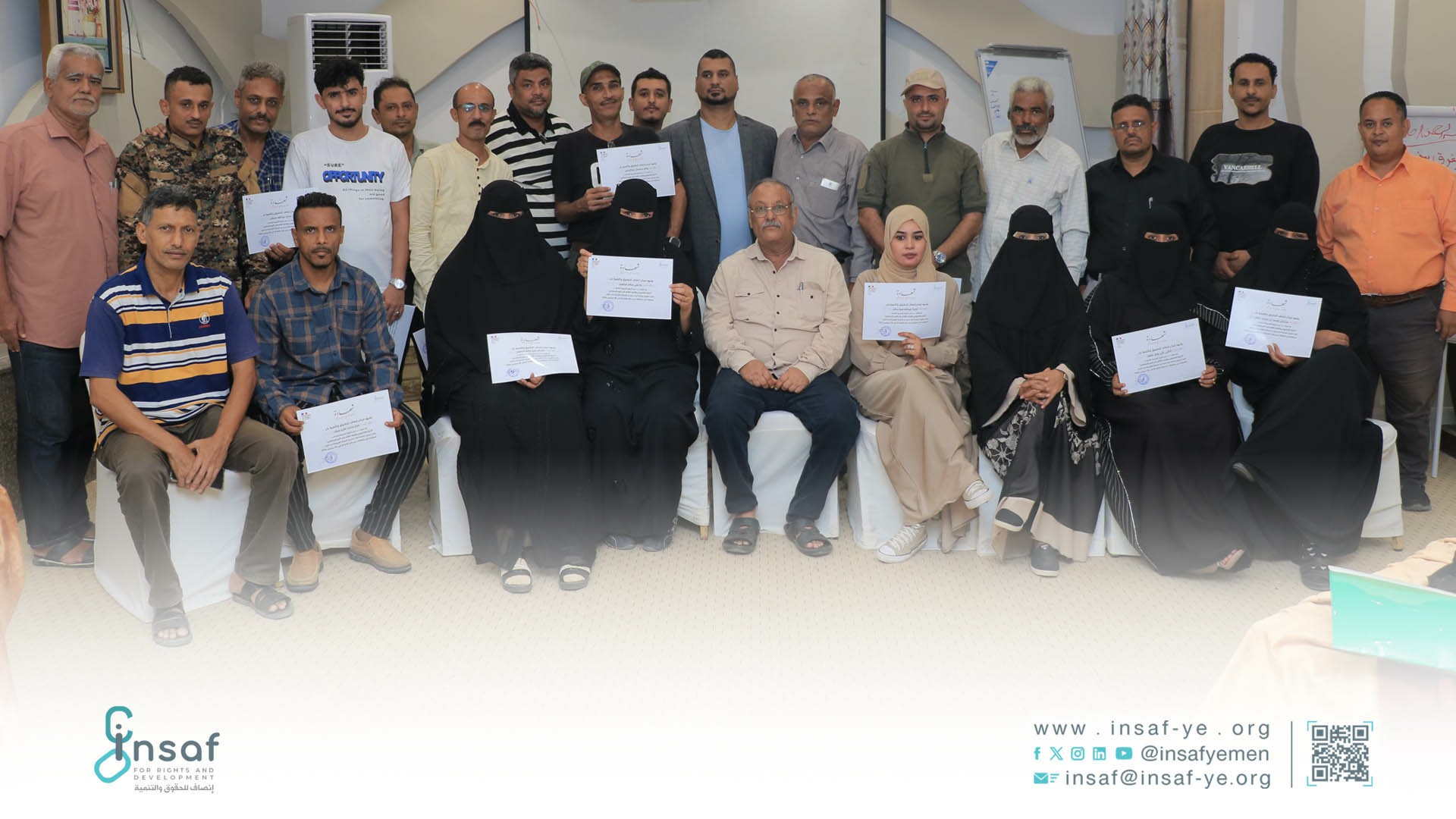Today, Thursday, INSAF Center for Rights and Development concluded the second phase of a series of training courses on combating cyber blackmail and digital gender-based violence in Aden, supported by the French Embassy in Yemen as part of Safe Space project, which will continue through four consecutive stages.
The course, attended by security officers and criminal investigators in Aden, aimed to equip them with the necessary knowledge and skills to effectively deal with cyber blackmail and digital gender-based violence crimes, contributing to protecting victims and enforcing the law against perpetrators of these crimes.
Mahmoud Al-Koukani, the financial and administrative officer of INSAF Center for Rights and Development, emphasized the continuation of Safe Space project in the coming days and the targeting of other entities following the success of the previous two phases.
Colonel Naji Qasim Al-Marfidi, head of the Criminal Investigation Department in the city of Aden, expressed his gratitude to INSAF Center for Rights and Development and the French Embassy for organizing such a course aimed at qualifying and building the capacities of officers and individuals in the fields of cyber blackmail and cybersecurity, given the rapid technological advancements and the emergence of societal issues related to blackmail affecting women, children, and men, as well as internet fraud cases.
Marina Abdullah, an investigator in the Criminal Investigation Department – Cybercrime and Electronic Crimes Division, highlighted that the cyber blackmail course is one of the quality courses, affirming that it provided them with new information on building individuals’ capacities in safeguarding electronic information, evidence, and data, as well as training individuals on how to deal with such modern and new societal issues.
Ahmed Redman, an investigator in the Cybercrime and Electronic Crimes Division, explained that these qualification courses work on building the capacities of officers and individuals on how to protect citizens’ rights from violations and in proving criminal evidence from damage and loss, aiding in resolving cyber extortion, cybersecurity, and internet fraud cases.




